Early 2014 conference
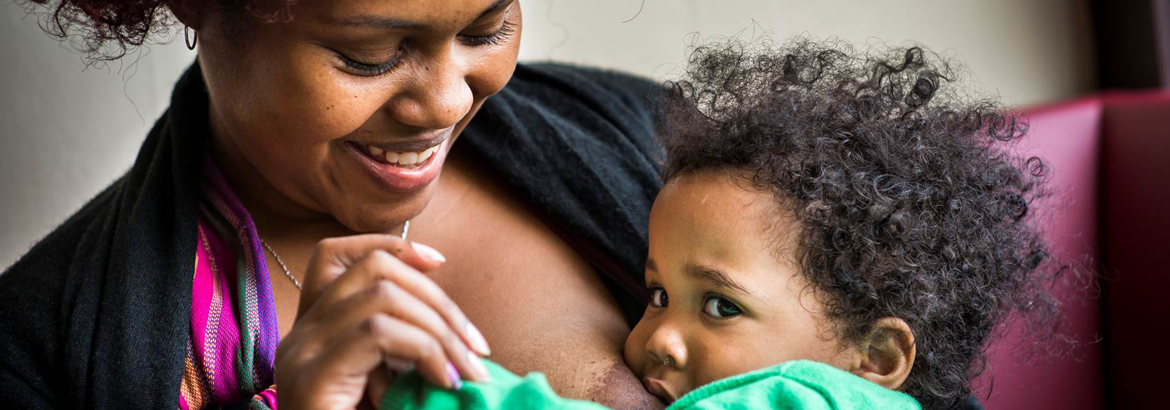
Heart to Heart:Connecting with breastfeeding mothers
March - April, 2014
Our 4th online breastfeeding conference
Photo credit: Paul Carter, We Do It In Public. Used with permission.
More Rock Stars of Lactation™ presented at our fourth conference, Heart to Heart: Connecting with breastfeeding mothers. This was held online during March-April 2014 and had participants from 40 countries. The conference is now closed and the presentations are no longer available. You can still read the topic introductions and more background about the speakers. Thank you for your interest!
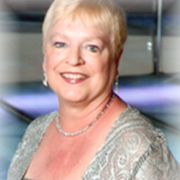
Helping parents survive the second night: A theoretical perspective on infant response to overstimulation
Jan Barger, RN, MA, IBCLC, FILCA - Read moreHelping parents survive the second night: A theoretical perspective on infant response to overstimulation
Jan Barger RN MA IBCLC FILCA
Jan Barger lives near Chicago, Illinois and is an RN with a Bachelors degree in Psychology & a Masters in Counseling. She became an IBCLC in 1987 and a FILCA in 2008. She has worked in Maternal-Child Health since 1972 and has had a private lactation practice for over 28 years. She is the administrative director of Lactation Education Consultants which provides a variety of lactation education programs for hospitals and public health. Jan is a past President of ILCA, has served on the IBLCE Board and on the IBCLE exam committee, was the first editor of the ILCA Globe, and is co-author of Clinical Experience in Lactation: A Blueprint for Internship and Clinical Instruction in Lactation. Currently Jan serves on the Ethics and Code Committee of ILCA.
Helping parents survive the second night: A theoretical perspective on infant response to overstimulation
What IS Baby’s Second Night? Why are babies so fussy on that second night? This presentation considered this issue from the perspective of mom, baby and nurse, and looked at the difference between the hospital environment (or the home environment) and the womb and the effects of overstimulation. Why are supplementation rates so high? What is really going on here, and is there anything we can do about it?
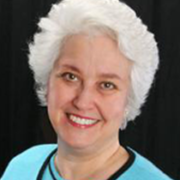
Collecting and storing mother’s milk: Clinical implications and evidence update
Marie Biancuzzo, RN, MS, IBCLC - Read moreCollecting and storing mother’s milk: Clinical implications and evidence update
Marie Biancuzzo, RN, MS, IBCLC
Marie Biancuzzo is a clinical nurse specialist and expert in issues related to childbearing. In three decades of practice, she has held positions as staff nurse, clinical nurse specialist, and nurse administrator at community and university-based hospitals. She has also held faculty positions at three prestigious universities. Throughout most of her career, Marie has practiced per diem as a staff nurse in nearly all sub-specialties of maternal-child health.
Marie is the author of Breastfeeding the Newborn: Clinical Strategies for Nurses, now in its second edition, as well as several independent study modules, and patient education materials. She has also written more than 100 articles. In addition, she is a founding member of the United States Breastfeeding Committee and the past president of Baby-Friendly USA Board of Directors.
Currently the Director of Education for Breastfeeding Outlook, Marie has presented courses to thousands of healthcare professionals, including her 90-credit LEAARC-approved Comprehensive Lactation Course offered online and in several US cities for the past several years. She hosts the popular weekly radio show,Born to be Breastfed with Marie Biancuzzo.
Collecting and storing mother’s milk: Clinical implications and evidence update
For many years, only one principle guided the collection and storage of milk: use a sterilized glass container and discard the milk before it was “bad.” Later, conflicting information was given about optimal lengths of storage time; parents became understandably confused, but professionals could not explain the discrepancies. Later, lightweight, inexpensive plastic bottles were favored, but with the scare of bisphenol-A toxicity looming ahead, parents were told to use only glass. As more and more mothers now express their milk, they have raised more questions about all of the seemingly mixed messages from the media and sometimes from professionals. This presentation helped professionals to make evidence-based recommendations for optimal storage times, temperatures, and containers based on the needs of the infant and the overall situation.

How baby food companies compete with health care systems and mother support groups as sources of information on infant care
Mike Brady, BSc, MEng - Read moreHow baby food companies compete with health care systems and mother support groups as sources of information on infant care
Mike Brady, BSc, MEng
Mike Brady is Campaigns and Networking Coordinator at Baby Milk Action in the UK. Originally an engineer, Mike joined Baby Milk Action in 1996 after working for four years in Malawi, Africa. Baby Milk Action is the UK member of the International Baby Food Action Network (IBFAN) and Mike works with partner organisations in the UK and around the world to stop aggressive marketing practices and bring in laws implementing international marketing standards.
How baby food companies compete with health care systems and mother support groups as sources of information on infant care
Baby food companies invest large sums of money in targeting pregnant women and the mothers of infants and young children. This presentation considered the strategies used in baby food marketing, which is regulated by international marketing standards adopted by the World Health Assembly. It looked at what companies can and cannot do, and how different countries are regulating the baby food industry and discuss the challenges faced by policy makers. What action can be taken by individuals to hold baby food companies to account?
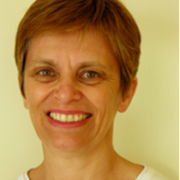
Health professionals and support for breastfeeding
Wendy Brodribb, MBBS, PhD, IBCLC, FABM - Read moreHealth professionals and support for breastfeeding
Wendy Brodribb, MBBS, PhD, IBCLC, FABM
Wendy Brodribb completed her medical degree in 1977 and has worked in the areas of general practice and women’s health in rural and regional Queensland. She became interested in lactation after the birth of her first child in 1980 and was an Australian Breastfeeding Association breastfeeding counsellor from 1983 to 2006. In 1990 she became an International Board Certified Lactation Consultant, was on the International Board of Lactation Consultant Examiners for 6 years (3 years as Board Chair) and is now the President of the Academy of Breastfeeding Medicine. She edited the text Breastfeeding Management and has written a number of other papers on breastfeeding topics. In 2010 she was the Clinical Lead in the development of the Statewide Maternity and Neonatal Clinical Guideline on Breastfeeding Initiation. She completed a PhD looking at the breastfeeding skills and knowledge of Australian GP registrars in 2009 and is now an Associate Professor in the Discipline of General Practice at the University of Queensland researching the postnatal care of women and infants following hospital discharge.
Health professionals and support for breastfeeding
Health professionals can have a significant impact on a woman’s breastfeeding experience – both in a positive and negative sense. Cultural and professional norms of the community and work environment, as well as attitudes, beliefs and knowledge, affect the behaviour of a health professional when interacting with breastfeeding women. This presentation discussed the role and understanding of breastfeeding support by health professionals, the outcomes of interventions to improve health professional support and strategies to assist health professionals provide the support women need.
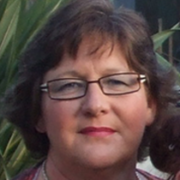
Using adult learning theory to create an effective breastfeeding class plan
Geraldine Cahill, BACed, IBCLC - Read moreUsing adult learning theory to create an effective breastfeeding class plan
Geraldine Cahill, BACed, IBCLC
Geraldine has been an IBCLC since 2007, and has worked in the area of breastfeeding since 1993 with Cuidiú in Ireland. Geraldine has specialised knowledge of Adult Educational Theories which she gained as an Antenatal Educator with Cuidiú since 1997 and by receiving a Degree in Community Development and Education at CIT in 2010 and completing a Training the Training Diploma with NUIG in 2012.
Geraldine provides lactation consultations privately in the Cork area and runs a monthly breastfeeding class. She is a tutor for Cuidiú in both Breastfeeding and Antenatal Education and currently serves on the National Council of Cuidiú as President. She is the representative for Cuidiú on the HSE National Breastfeeding Strategy, Monitoring and Implementation Committee and is also on several sub-committees of this national group.
She is a member of both the Association of Lactation Consultants in Ireland (ALCI) and the International Lactation Consultant Association (ILCA) and serves on both the Membership and Education committees of ILCA. She is also a member of the International Childbirth Educators Association (ICEA) and Lamaze International.
Using adult learning theory to create an effective breastfeeding class plan
A framework for creating breastfeeding classes ideally takes into account the impact of different learning styles. The differences in aims and learning outcomes, and prioritize the items that need to be included in a class were discussed, followed by a review of a breastfeeding class design that meets the needs of parents.
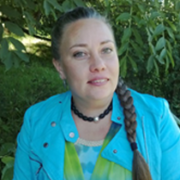
Close to heart: Baby- and family-centred care for the most vulnerable
Aino Ezeonodo, RN, CEN, CPN, CNICN, MHC - Read moreClose to heart: Baby- and family-centred care for the most vulnerable
Aino Ezeonodo, RN, CEN, CPN, CNICN, MHC
Aino Ezeonodo’s primary professional interest revolves around Kangaroo Mother Care (KMC) and early interaction, and the underlying perinatal and developmental neuroscience. Her background in Transcultural Nursing and Clinical Neonatal Intensive Care Nursing explains her broader health promotion approach to supporting and promoting the global dissemination of maternal-infant skin-to-skin contact. Her recent (research) implementation projects are focused on change processes of culture/climate in the NICU, and the implementation of new care routines, research and knowledge translation, family centred care, kangaroo mother care and breastfeeding. During her career she has been involved in many organisations and projects that focus on improvements of neonatal care. She is a member of Neo-BFHI Working group and KMC education and training group. Also she is a member of the board of The Finnish Society of Neonatal Nurses. In 2012 she was Awarded twice, firstly as Neonatal Developer Nurse for her work on Promoting and Educating Kangaroo Mother Care Method Globally and Locally and secondly as Premature Baby Impactor for being a person making remarkable work to better the life of premature infants and their families. She has been an international speaker at many conferences.
Close to heart: Baby- and family-centred care for the most vulnerable
Compared to healthy term infants, sick term infants or preterm infants and their families may be seen as the most vulnerable patient group in Perinatal Services. These infants and their families are faced with the busy Neonatal Intensive Care Unit (NICU) environment, which they often feel as hostile. Today almost all very preterm or sick infants are separated from their parents in the NICU. Recent research evidence has revealed that separation is a critical initiator of a “toxic stress” process leading to later behavioural and emotional problems both with the infant and the mother (family). The family-infant relationship is negatively affected by institutional authority, emotional exhaustion and the developmental immaturity of the premature baby or the clinical condition of the sick infant. As most of these infants cannot be fully breastfed right after birth, separation adds further obstacles to the initiation of breastfeeding and early interaction.
There is a need for a change process in Perinatal Services as a whole, not only in NICUs. Everyone has a role to play in making Baby- & Family-Centred Care a reality for all our infants and their families. Recent research has shown that early initiation of lactation is as vital as early initiation of skin-to-skin contact for the health promotion of this patient group. Kangaroo mother care (KMC) is a method / intervention with research evidence that supports physiological stability, physical closeness, emotional closeness and breastfeeding. However for KMC to become a reality in many institutions the organisational culture and care patterns need to be changed. The configuration of the hospital care space must facilitate maximum/continuous contact between mother and baby as well as other key family members. Also the attitudes and practices of the Health Care Professionals related to parental involvement, implementation of family-centred care and staff practices needs to be updated. The good news is that this all is very possible when we see the most vulnerable close to our hearts.
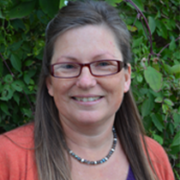
The experience of the breastfeeding peer support program in Brighton, UK
Zoe Faulkner, BA(Hons), IBCLC - Read moreThe experience of the breastfeeding peer support program in Brighton, UK
Zoe Faulkner, BA(Hons), IBCLC
Zoe Faulkner is an International Board Certified Lactation Consultant, and has been involved in breastfeeding support, inspired by her personal experience with her daughter, since 1996. Initially working in the voluntary sector, she took up her current NHS post, as Breastfeeding Peer Support Co-ordinator, in January 2008. Alongside her colleagues, Zoe is responsible for the training, supervision and ongoing development of the peer support programme.
She is also responsible for a city-wide Breastfeeding Drop in. This weekly clinic, where she and colleagues support mothers and babies, is the referral point for complex and on-going breastfeeding problems.
Zoe has contributed on the subject of Peer Support to the Masters level course, “Infant Feeding Practice and Policy”, for the University of Brighton. She is also the chair of the Media and Public Relations Sub Group for Lactation Consultants of Great Britain (LCGB).
Zoe has a first class honours degree in Fashion Textiles with Business Studies, and holds a teaching qualification. Prior to the birth of her daughter and discovering the wonders of breastfeeding, she worked designing womenswear fabrics and was a visiting lecturer in Woven Textiles. She lives and works in Brighton and Hove in the UK, where she continues her passion for breastfeeding, and commitment to her practice as an IBCLC.
The experience of the breastfeeding peer support program in Brighton, UK
How can we provide additional support to breastfeeding mothers and babies? This presentation explained the different types of peer support and, specifically, the experience of the Breastfeeding Peer Support Programme in Brighton and Hove in the UK.
It included the course content, the recruitment of volunteers, their supervision and their ongoing training and management. It outlined how we ensure standards and consistency, how we maintain our volunteers, and lessons we have learnt along the way. Also discussed was how the programme is integrated into existing breastfeeding services, and how it works alongside others. Our mum-to-mum breastfeeding peer supporters volunteer on the postnatal ward as well as many community health settings.
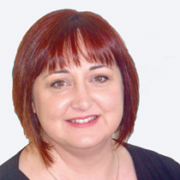
Australian Breastfeeding Association – celebrating 50 years of mother to mother support
Rachel Fuller, IBCLC - Read moreAustralian Breastfeeding Association – celebrating 50 years of mother to mother support
Rachel Fuller, IBCLC
A qualified breastfeeding counsellor since 2001, Rachel is also an International Board Certified Lactation Consultant (IBCLC) working in private practice. She has been an active volunteer for the Australian Breastfeeding Association since 1999, director since 2010 and currently holds the position of President. Rachel and her husband Leigh live near Mildura in regional Victoria, Australia, with their four children.
Australian Breastfeeding Association – celebrating 50 years of mother to mother support
The Australian Breastfeeding Association was formed by a group of six mothers in 1964 in a suburban Melbourne loungeroom as the Nursing Mothers Association. Fifty years on, and the Association is still an integral part of breastfeeding information and support in Australia, providing help and support to more than 80,000 mothers every year.
This presentation was a celebration of the role of the Australian Breastfeeding Association in influencing breastfeeding rates in Australia through the commitment of thousands of volunteers, the experience of many mothers, evidence based information and unconditional mother-to-mother support.
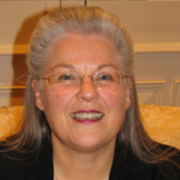
Can you help me breastfeed? Building breastfeeding self-efficacy – from theory to practice
Rebecca Glover, RM, IBCLC - Read moreCan you help me breastfeed? Building breastfeeding self-efficacy – from theory to practice
Rebecca Glover, RM, IBCLC
Rebecca Glover developed a special interest in the process and practice of breastfeeding during her midwifery training in 1970. In 1989 she became a Lactation Consultant in private practice, working with mothers and babies with breastfeeding difficulties, running workshops and lecturing to health professionals, nationally and internationally. Rebecca is a specialist in the area of positioning and attachment (latching) and her range of education materials, including the video ‘Follow Me Mum’ are used widely in Hospitals and clinics throughout Australia and overseas.
Can you help me breastfeed? Building breastfeeding self-efficacy – from theory to practice
Self-efficacy is a strong and modifiable predictor of successful breastfeeding outcomes. In this presentation Rebecca described how to use the very practical tenets of self-efficacy theory, to show a mother how to effectively support her baby’s innate latching behaviours, and how this can provide simple, effective and evidence based ways to help mothers with latching difficulties and diminished confidence in their ability to breastfeed.
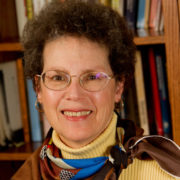
Cruelty in maternity wards – the dark side of institutionalizing care
Henci Goer, BA - Read moreCruelty in maternity wards – the dark side of institutionalizing care
Henci Goer, BA
Henci Goer, award-winning medical writer and internationally known speaker, is an acknowledged expert on evidence-based maternity care. Her first book, Obstetric Myths Versus Research Realities, was a valued resource for childbirth professionals. Its successor, Optimal Care in Childbirth: The Case for a Physiologic Approach, has won the American College of Nurse-Midwives “Best Book of the Year” award. Henci has also written a book giving pregnant women access to the research evidence: The Thinking Woman’s Guide to a Better Birth. In addition, she has written consumer education pamphlets and articles for trade, consumer, and academic periodicals. Henci is in the process of developing Childbirth U, a website where pregnant women and others will be able to purchase narrated slide presentations at modest cost that will lay out what practices and policies constitute optimal care in childbirth according to the research, thereby enabling women to make truly informed decisions about care.
Cruelty in maternity wards – the dark side of institutionalizing care
“Cruelty in Maternity Wards” entitled a shocking article published in 1959 in Ladies Home Journal in which women told stories of their inhumane treatment in U.S. labor and delivery wards during childbirth. Henci made the case that despite efforts to humanize maternity care in the U.S. and abroad over the ensuing decades, nothing substantial has changed — not for American women and certainly not for women worldwide. Henci documented the scope of that failure and its impact on childbearing women, argue that inhumane treatment is an inevitable result of elements integral to the institutional culture of conventional hospital maternity units, and explained what perpetuates what can only be called systemic violence against women. Takeaway for attendees was advice on how to help breastfeeding mothers who have experienced traumatic birth and access to relevant resources.

Breastfeeding culture in India
Manisha Gogri, MBBS, CBE, IBCLC - Read moreBreastfeeding culture in India
Manisha Gogri, MBBS, CBE, IBCLC
Dr Manisha Gogri acquired her medical degree in Mumbai in 1998. In the year 2000, she became a certified childbirth educator and a pre- & post-natal fitness instructor. She started an antenatal program for couples called FIT FOR BIRTH in Mumbai in 2002, at a time when no such program existed in her part of the city. She was then associated and trained with Breastfeeding Promotion Network of India (BPNI Maharashtra) and was accredited as a mother support group counsellor, and subsequently a trainer. She became the 2nd La Leche League leader in India in 2008 and has since been conducting free monthly meetings for pregnant and breastfeeding mothers, in addition to providing information and support all over India via telephone and email. In 2009, when the first ever IBCLC exam was conducted in India, she became certified as a lactation consultant. Last year she was appointed as faculty by CAPPA (Childbirth and Postpartum Professionals Association) for their Certified Lactation Educator (CLE) program in India. A mother of two lovely boys aged 13 and 8, she is presently attached to Seven Hills Hospital in Mumbai as a lactation consultant, the first such post in Mumbai in a multi-speciality private hospital. She also has a private lactation practice in Mumbai.
Breastfeeding culture in India
This presentation gave a brief history of the importance of breastfeeding in the Indian culture. Breastfeeding is almost universal in India, yet there are large differences among the vast and diverse population groups within the country. There is an overall belief that breast milk is the ideal food for the new-born but a lot has changed with industrialisation and modernisation of the society. Even today many rituals, myths and preconceived notions on breastfeeding are prevalent, which actually undermine exclusive and prolonged breastfeeding.
Infant mortality, malnutrition and morbidity is very high in India. Optimal infant and young child feeding practices can contribute a lot to prevent and reduce this and help India meet the Millennium Development Goals. The presentation also discussed some challenges currently faced by breastfeeding mothers, and the measures that can improve the status of breastfeeding in India.

Making the case for a targeted approach to racial equity in breastfeeding support
Kiddada Green, MAT - Read moreMaking the case for a targeted approach to racial equity in breastfeeding support
Kiddada Green, MAT
Kiddada Green is the founding director of Black Mothers’ Breastfeeding Association (BMBFA), co-founder of Black Breastfeeding Week and sits on the advisory council of the Home Instruction for Parents of Preschool Youngsters, Women’s eNews Black Maternal Health and Wayne Children’s Healthcare Access Program. She works tirelessly to increase breastfeeding rates for African Americans. As the founder of BMBFA, she is committed to supporting families, and training public health workers on cultural competence in breastfeeding support. As a member of the expert panel, she put forth recommendations for the The Surgeon General’s Call to Action to Support Breastfeeding. Kiddada gladly participated on the design team for the 2013 W K Kellogg Foundation’s “First Food Convening”. She has also led roundtable discussions and presented workshop sessions in multiple states. She is a published journal writer for “Breastfeeding Medicine” and she successfully completed a business accelerator fellowship with Enterprising Health, a subsidiary of Ascension Health.
Kiddada holds a Bachelor’s Degree from Michigan State University and a Master’s Degree in the Art of Teaching from Oakland University. In 2012, Mrs. Green was recognized as Healthy Child Healthy World’s May Mom on a Mission. She recently joined the executive board as a co-treasurer for her child’s PTA. Kiddada is a proud and devoted wife, mother and educator.
Making the case for a targeted approach to racial equity in breastfeeding support
Have you ever had difficulty getting a black mother to initiate or continue breastfeeding? Have you ever wondered what makes the black breastfeeding experience unique? Do you want to focus more attention on eliminating the racial disparity in breastfeeding rates, but you find it difficult to present a rationale to your administration? This presentation answered these questions and more.
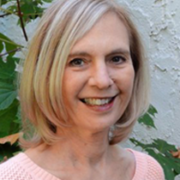
Counselling breastfeeding mothers of babies with congenital heart disease
Rachelle Lessen, MS, RD, IBCLC ,LDN - Read moreCounselling breastfeeding mothers of babies with congenital heart disease
Rachelle Lessen, MS, RD, IBCLC ,LDN
Rachelle Lessen is an IBCLC and a Registered Dietitian and has a Masters of Science degree in health education. She has worked as a lactation consultant at the Children’s Hospital of Philadelphia since 1996 when she established the Lactation Support Program. Rachelle provides lactation consultations for families of patients admitted to the hospital and assists mothers and babies with breastfeeding. She counsels families in the Fetal Heart Program prenatally to offer support and guidance related to breastfeeding an infant with congenital heart disease. She also has an outpatient clinic to help mothers with breastfeeding challenges. She specializes in nutrition-related problems including food allergies and poor growth. Rachelle is the co-author of the ILCA publication “Risks of Not Breastfeeding” and the ADA Position Statement on Breastfeeding and has written chapters or articles for various publication on issues related to breastfeeding and nutrition. Rachelle has been passionate about breastfeeding since she became a Nursing Mother’s Counselor in 1979. She breastfed four children and has five grandchildren, all of whom were breastfed.
Counselling breastfeeding mothers of babies with congenital heart disease
Congenital heart defects (CHD) can cause significant challenges related to nutrition and growth. Infants undergoing cardiac surgery early in life may not have opportunities to breastfeed at birth or in the first few days and weeks of life and may require additional forms of nutritional support to grow adequately. Mothers may be separated from their infants at birth and will need emotional support and guidance on strategies to support lactation. This presentation showed how a hospital program can support mothers to attain a good supply and assist them to transition to direct breastfeeding. Case studies of mothers and babies were presented to demonstrate that infants with CHD can successfully breastfeed and thrive.

The transfer of medications into human milk
Lawrence Noble, MD, FABM, IBCLC - Read moreThe transfer of medications into human milk
Lawrence Noble, MD, FABM, IBCLC
Since completing his neonatology fellowship at Rainbow, Dr Lawrence Noble has worked as a pediatrician and neonatologist in New York City, currently at Mount Sinai School of Medicine, Elmhurst. At the same time, he has become increasingly involved in breastfeeding medicine. He founded and chaired the Bronx Breastfeeding Coalition and the Breastfeeding Beyond Basics Conferences in NYC. And co-chaired the HHC Taskforce on Breastfeeding, which developed major initiatives to increase breastfeeding at 11 hospitals. He was site director for the AAP Breastfeeding Residency Curriculum. He’s an executive committee member of the Breastfeeding Section of the AAP, the Board of Directors of the Academy of Breastfeeding Medicine and the NYC Breastfeeding Promotion Leadership Committee. He is chair of the ABM Education Committee and Protocol Translation Sub-committee.
The transfer of medications into human milk
Lactating women are often exposed to medications or other therapeutics, either on a limited or long-term basis, depending on the need to treat acute or chronic conditions. Many women are advised to discontinue nursing or avoid taking necessary medications because of concerns about possible adverse effects in their infants. Such advice is often not based on evidence, because information about the extent of drug excretion into human milk may be unavailable, and for many drugs, information is limited to data from animal studies, which may not correlate with human experience. In addition, not all drugs are excreted in clinically significant amounts into human milk, and the presence of a drug in human milk may not pose a risk for the infant. To weigh the risks and benefits of breastfeeding, health professionals need to consider multiple factors, which were addressed in this presentation.
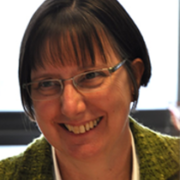
Infant feeding: a contentious topic?
Mary Renfrew, BSc, RN, RM, PhD - Read moreInfant feeding: a contentious topic?
Mary Renfrew, BSc, RN, RM, PhD
Dr Mary Renfrew is a health researcher with a clinical background in midwifery and nursing. She has worked in the universities of Edinburgh, Oxford, Leeds, and York in the UK and in Alberta, Canada. In 1996 Mary founded the multidisciplinary Mother and Infant Research Unit (MIRU) in the University of Leeds, and she has led it since, recently re-establishing it following her move to Dundee in 2012. MIRU’s research has been used to inform and shape policy and practice in maternity care and infant feeding nationally and internationally. In Dundee Mary leads programmes of work on reducing inequalities in health and on improvement science. She has conducted research in infant feeding for over 30 years, and has led a number of seminal reviews of the field, including the Cochrane review of support for breastfeeding mothers, a review of interventions to support breastfeeding in neonatal units, and a cost analysis of low breastfeeding rates published by UNICEF. In addition to over 120 academic journal publications, Mary has written widely about maternity care and infant feeding, and is co-author and editor of books for academic, professional and lay audiences, including ‘Bestfeeding’ (with Chloe Fisher and Suzanne Arms), and ‘Enabling women to breastfeed’ (with Mike Woolridge). She was appointed an inaugural Senior Investigator with the UK National Institute for Health Research, has been Chair of the WHO Strategic Committee for Maternal and Newborn Health and was a founding co-editor of the Cochrane Pregnancy and Childbirth Group. She is a member of the ICM Research Standing Committee and the WHO working group on quality of care in midwifery, and is currently leading a global alliance to write a Special Series on Midwifery for the Lancet, funded by the Bill and Melinda Gates Foundation.
Infant feeding: a contentious topic?
Good quality evidence demonstrates that breastfeeding is probably the single most effective intervention to promote child health, development and wellbeing in the short, medium and long term, and that it also has a significant positive impact on women’s health. If there was a drug that reduced mortality rates in small and sick babies; prevented acute gastroenteritis, lower respiratory tract infection, otitis media, Sudden Infant Death Syndrome, childhood obesity and diabetes; lowered serum cholesterol and reduced cardiovascular disease in adults; significantly improved cognitive development in children, and reduced breast cancer in women, all with only beneficial side effects, drug companies would compete to produce it and families would pay large amounts of money to buy it. Paradoxically, the product that companies compete to produce and that families pay for is formula.
Again paradoxically, in many high-income countries the rates of breastfeeding are lowest among low income families, who can least afford the cost of formula, bottles and sterilising equipment when a much better alternative is available free of charge.
At the same time, breastfeeding is such a contentious issue in some countries and communities that a study in England found that pregnant teenagers considered it to be ‘immoral’ to breastfeed, and stories about breastfeeding in the media regularly cause intense, often hostile, reactions.
This talk examined the factors that underlie these paradoxes, drawing on recent examples of media responses to infant feeding-related issues, and considered possible ways of contributing positively to media discourses on infant feeding.
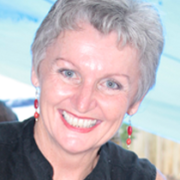
What’s the big deal about ethics?
Bridget Roache, RN, RM, IBCLC - Read moreWhat’s the big deal about ethics?
Bridget Roache, RN, RM, IBCLC
Bridget has been providing professional lactation and child birth education for the past two decades. During her thirty years of clinical experience in delivering maternity care as a midwife, lactation consultant and child birth educator, she has worked in a variety of settings including hospitals, private practice and in multicultural environments.
Bridget has been conducting comprehensive professional education programs in Australia and the Middle East. These programs have including addressing ethical issues that affect IBCLCs in practice, in both private and public clinic settings. She has been a Baby Friendly Health Initiative (BFHI) Educator and Assessor and is a trainer for the Word Health Organisation Global Strategy for Infant and Young Child feeding. Additionally, she has consulted to various hospitals on BFHI preparation, development and delivery of education programs. As a result, many hospitals have successfully achieved formal BFHI accreditation.
What’s the big deal about ethics?
This presentation looked at how some basic principles of ethics impacts on issues that IBCLCs face on a regular basis. Scenario case studies enabled IBCLCs to identify their attitudes and beliefs about ethical principles; deconstruct ethical decision-making and review online counselling. It also explored confidentiality, rights and responsibilities of clients and IBCLCs. This presentation showed how the transference of standards and codes can govern everyday practice with relative ease.
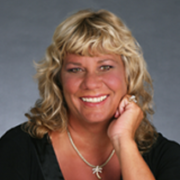
Breastfeeding Resource Nurses change institutional culture
Diane Spatz, PhD, RN-BC, FAAN - Read moreBreastfeeding Resource Nurses change institutional culture
Diane Spatz, PhD, RN-BC, FAAN
Dr Diane Spatz, the Professor of Perinatal Nursing and the Helen Shearer Professor of Nutrition at the University of Pennsylvania School of Nursing, is also the Director of the Lactation Program and a nurse researcher at The Children’s Hospital of Philadelphia. A proud alumna, she received her BSN, MSN, and PhD from Penn Nursing.
Dr Spatz is an internationally renowned clinical nurse scientist who has translated the science of human milk and breastfeeding worldwide. At The Children’s Hospital of Philadelphia, Dr Spatz developed an innovative Breastfeeding Resource Nurse program which has educated more than 650 nurses who provide evidence based lactation support and care to families. In her research, Dr Spatz has been principal investigator and/or co-investigator on more than 25 grants, including those federally funded by the National Institutes of Health, resulting in more than 70 articles, book chapters, DVDs, policy statements, and practice guidelines. She authored the first position statement on human milk and breastfeeding for the National Association of Neonatal Nurses as well as the new position statement on the Risks of Not Breastfeeding for the International Lactation Consultant Association. Dr Spatz is also Chair of the American Academy of Nursing’s Expert Panel on Breastfeeding and serves as their representative to the United States Breastfeeding Committee.
Dr Spatz has lectured widely both nationally and internationally. In 2007, she was a Visiting Professor at the University of Western Australia. In January 2013, Dr Spatz was invited by the Thai Breastfeeding Foundation and Thai government to travel there for implementation of her 10 Step model in every NICU in Thailand. In March, Dr Spatz was the Frances Matsuda Visiting Scholar at the University of Hawaii, consulting with faculty, students, and birth hospitals, as well as conducting a 1½ day symposium for the Hawaii Breastfeeding Coalition.
As an experienced teacher who has received the prestigious Lindback Award for Distinguished Teaching, Dr Spatz has graduated 300 students from her undergraduate case study course who have gone on to influence breastfeeding practice and policy both in the United States and abroad. Her interest in undergraduate education extends to her role as faculty advisor to Student Nurses at Penn (SNAP). Since she assumed the role in 1999, Penn students have won state and national scholarships and awards, and served on both state and national boards.
Dr Spatz is the recipient of numerous awards including: the Research Utilization Award from Sigma Theta Tau International and serves as Faculty for the Sigma Theta Tau and Johnson & Johnson Maternal Child Leadership Academy.
Breastfeeding Resource Nurses change institutional culture
In this presentation the critical role of nurses in providing evidenced based lactation support and care was discussed. Dr Spatz described the essential components of the Breastfeeding Resource Nurse (BRN) course and the roles & responsibilities of BRNs, followed by an overview of the ways in which the BRN role has led to changes in institutional culture.

Late preterm infants, brain development and breastfeeding
Diane Spatz, PhD, RN-BC, FAAN - Read moreLate preterm infants, brain development and breastfeeding
Diane Spatz, PhD, RN-BC, FAAN
Dr Diane Spatz, the Professor of Perinatal Nursing and the Helen Shearer Professor of Nutrition at the University of Pennsylvania School of Nursing, is also the Director of the Lactation Program and a nurse researcher at The Children’s Hospital of Philadelphia. A proud alumna, she received her BSN, MSN, and PhD from Penn Nursing.
Dr Spatz is an internationally renowned clinical nurse scientist who has translated the science of human milk and breastfeeding worldwide. At The Children’s Hospital of Philadelphia, Dr Spatz developed an innovative Breastfeeding Resource Nurse program which has educated more than 650 nurses who provide evidence based lactation support and care to families. In her research, Dr Spatz has been principal investigator and/or co-investigator on more than 25 grants, including those federally funded by the National Institutes of Health, resulting in more than 70 articles, book chapters, DVDs, policy statements, and practice guidelines. She authored the first position statement on human milk and breastfeeding for the National Association of Neonatal Nurses as well as the new position statement on the Risks of Not Breastfeeding for the International Lactation Consultant Association. Dr Spatz is also Chair of the American Academy of Nursing’s Expert Panel on Breastfeeding and serves as their representative to the United States Breastfeeding Committee.
Dr Spatz has lectured widely both nationally and internationally. In 2007, she was a Visiting Professor at the University of Western Australia. In January 2013, Dr Spatz was invited by the Thai Breastfeeding Foundation and Thai government to travel there for implementation of her 10 Step model in every NICU in Thailand. In March, Dr Spatz was the Frances Matsuda Visiting Scholar at the University of Hawaii, consulting with faculty, students, and birth hospitals, as well as conducting a 1½ day symposium for the Hawaii Breastfeeding Coalition.
As an experienced teacher who has received the prestigious Lindback Award for Distinguished Teaching, Dr Spatz has graduated 300 students from her undergraduate case study course who have gone on to influence breastfeeding practice and policy both in the United States and abroad. Her interest in undergraduate education extends to her role as faculty advisor to Student Nurses at Penn (SNAP). Since she assumed the role in 1999, Penn students have won state and national scholarships and awards, and served on both state and national boards.
Dr Spatz is the recipient of numerous awards including: the Research Utilization Award from Sigma Theta Tau International and serves as Faculty for the Sigma Theta Tau and Johnson & Johnson Maternal Child Leadership Academy.
Late preterm infants, brain development and breastfeeding
This session focused on the protection that human milk affords the brain, how brain development affects breastfeeding behaviors and the discussed strategies to protect breastfeeding for the late preterm infant.

The work of AIMI: Breastfeeding support in Indonesia
Mia Sutanto, SH, LLM - Read moreThe work of AIMI: Breastfeeding support in Indonesia
Mia Sutanto, SH, LLM
Mia Sutanto is a mother of two breastfed daughters. She is one of the founders, and currently active as the chairwoman, of the Indonesian Breastfeeding Mothers’ Association (AIMI). She has a graduate and post-graduate degree in law, but since 2007 has fully embraced her role as a breastfeeding counselor. Mia is also a certified trainer for the 40-hour WHO/UNICEF breastfeeding counselors training, and a master trainer for the UNICEF IYCF counselors training. Her legal background has enabled her to also focus on breastfeeding advocacy work, both at a national and international level. In 2011 she wrote a children’s book titled Mommy, What Do Babies Eat? that introduces and normalizes the concept of breastfeeding for young children. During that year she also became an Ashoka Fellow. In 2013 Mia enrolled as a Childbirth International (CBI) student, studying to become a birth & postpartum doula and also a childbirth educator.
The work of AIMI: Breastfeeding support in Indonesia
Research has shown that peer support is one of the key factors to a successful breastfeeding experience. No one knows, no one understands better what a breastfeeding mother needs than another breastfeeding mom. It was based on these thoughts that on 21st April 2007 22 breastfeeding mothers of all ages coming from different economic, social, educational and cultural backgrounds decided to establish a breastfeeding support group that solely focuses on providing mothers with what they truly need: unconditional, non-judgmental, skilled breastfeeding support.
From 22 moms, now the Indonesian Breastfeeding Mothers’ Association (AIMI) has thousands of members with branches established in 10 (and counting) provinces throughout Indonesia. Regular breastfeeding support activities, counseling, training, empowering local women, tackling breastfeeding myths, dealing with a mostly unsupportive medical community, national breastfeeding campaigns and international advocacy are just some of the work that AIMI does, all on a voluntary basis. The volunteers are the backbone of our organization.
Challenges? Of course there are obstacles and challenges that have to overcome. As the organization has grown, it becomes more important than ever to find a way to address these challenges and make sure that our organization continues to thrive.
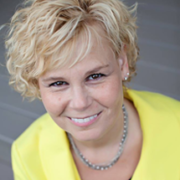
Working together: Communicating with physicians about breastfeeding
Jennifer Thomas, MD, MPH, IBCLC, FABM, FAAP - Read moreWorking together: Communicating with physicians about breastfeeding
Jennifer Thomas, MD, MPH, IBCLC, FABM, FAAP
Dr Jennifer Thomas is a pediatrician and breastfeeding medicine specialist in Franklin, Wisconsin, USA. She is currently the Chief of all 78 Chapter Breastfeeding Coordinators, a group who serves the Section on Breastfeeding for the American Academy of Pediatrics as ambassadors to their communities. She has been the Chapter Breastfeeding Coordinator for Wisconsin since 2005, helping Wisconsin mothers and babies on the local and state level. She also serves on the Executive Board of the Wisconsin Chapter of the American Academy of Pediatrics, and is Chairperson of the Wisconsin Breastfeeding Coalition.
She recently earned her MPH, with her thesis focusing on breastfeeding support and social media. She is one of 88 physicians worldwide to hold the credentials of FABM (Fellow of the Academy of Breastfeeding Medicine). She recently co-authored her first book, Dr. Jen’s Guide to Breastfeeding. You can find her on Facebook, Twitter and her website, www.drjen4kids.com.
Working together: Communicating with physicians about breastfeeding
Physicians can be powerful allies in changing the breastfeeding culture of a hospital or community, but how can we engage them in that advocacy? How do we share our passion for breastfeeding with physicians who may not have had much in the way of training about breastfeeding or had a poor personal experience which impacts the advice they give? This presentation described what we know about physician knowledge and attitudes about breastfeeding, discussed how physicians learn and what strategies may motivate change, identified and discussed how to help avoid potential roadblocks and provided suggestions on how to communicate with physicians to get them on board with breastfeeding.
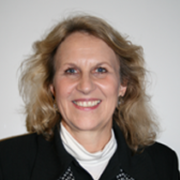
The role of donor human milk in supporting lactation and breastfeeding on the neonatal unit and beyond
Gillian Weaver, BSc(Hons), RD - Read moreThe role of donor human milk in supporting lactation and breastfeeding on the neonatal unit and beyond
Gillian Weaver, BSc(Hons), RD
Gillian Weaver studied human nutrition and also qualified as a therapeutic dietition in the UK before becoming engaged in nutrition education and health promotion. Following the birth of her first child she transferred her skills to the field of human milk banking and has now been actively involved in the provision of donor human milk to preterm and sick infants in hospital for almost 25 years. Her experience has been acknowledged at both national and international level with invitations to participate in the development of national strategies and guidelines as well as to contribute to global efforts to improve the provision of safe and sustainable donor human milk. In 1997, Gillian co-founded and was later the chair of the UK Association for Milk Banking (UKAMB) and she currently co-ordinates the UKAMB National Milk Bank Forum. More recently she co-founded the European Milk Bank Association (EMBA) which was officially inaugurated in 2010. Gillian is midway through a three year term as its President having previously been the Vice President for two years. These roles, together with her ongoing practical role within the milk bank and neonatal unit at Imperial College Healthcare NHS Trust in West London, have led her to organise national and international conferences on human milk banking and on preterm lactation and breastfeeding.
The role of donor human milk in supporting lactation and breastfeeding on the neonatal unit and beyond
This presentation provided an overview of the nutrition and enteral feeding requirements of infants admitted to neonatal units and optimal ways to support mothers to be able to meet those needs. The unique role of colostrum, helping mothers to collect and provide their colostrum following delivery, the role of donor human milk in supporting the early introduction of enteral feeds and evidence in support of the use of donor human milk on the neonatal unit were also discussed. Also covered were safety considerations in human milk banking and ways in which human milk banking and the provision of donor milk also promote breastfeeding post-discharge from the neonatal unit. Milk banks serve an important role in promoting breastfeeding generally.

